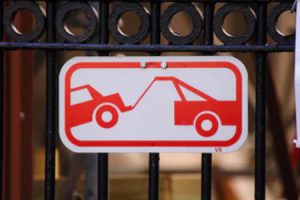Can Bankruptcy Stop Auto Repossession?

There is a myth that owners must be at least three month late on vehicle payments before the bank starts repossession procedures. If the owner has a good payment history, that might be true. Legally, however, banks may begin such proceedings after one missed payment. In many cases, that’s exactly what happens.
Also, bear in mind that if the lender grants a 30-day extension, that’s 30 days from the date the payment was due and not 30 days from the date of the extension. So, if the payment was already two weeks late, the bank expects money in another two weeks.
Once the repossession process begins, it’s almost impossible to stop it. In fact, bankruptcy might be the only way. The good news is that bankruptcy does more than stop immediate repossession. In many cases, it also makes your vehicle easier to afford in the long run.
The Automatic Stay
In most cases, Section 362 of the Bankruptcy Code prohibits all forms of adverse creditor action. Examples include:
- – Repossession,
- – Foreclosure,
- – Civil lawsuits, and
- – Wage garnishment.
If the debtor has filed bankruptcy previously, the Automatic Stay might only have limited applicability. Additionally, moneylenders can bypass Section 362 if the judge gives them special permission. In order to receive such permission, moneylenders must normally convince the judge there is an imminent danger to the collateral (e.g. the owner posted a statement on social media stating that she planned to drive the car over a cliff).
The Automatic Stay is even more important today. The Supreme Court has recently diluted some of the consumer protections in the Fair Debt Collection Practices Act. As a result, some moneylenders are more aggressive than ever. And when it comes to unscrupulous debt collectors, “aggressive” is a very polite word.
Automobile Exemptions in Indiana
Bankruptcy is designed to give people a fresh start. As a result, most personal property is exempt.
Indiana does not have a separate motor vehicle exemption. However, debtors can apply the wildcard exemption to cars, trucks, motorcycles, and pretty much any other motor vehicle. As of February 2020, the wildcard exemption was $10,250.
Debtors only need exempt vehicle equity. The entire fair market value does not matter. Most new cars have high values, but practically no equity. Many vehicles lose most of their value almost immediately, especially if they were in fender-bender or other minor accidents. So, on the other end of the scale, most used cars have considerable equity but practically no value. So, the wildcard exemption is usually more than enough to protect vehicle equity, even if debtors use part of their wildcards on other property, like cash in a savings account.
The Redemption Option
Bankruptcy assistance is not limited to short term relief and property exemption. The redemption option might be available as well.
This option, which is only available in bankruptcy, allows the owner to pay the fair market value of the collateral and own it outright.
Assume Nick paid $25,000 for a car two years ago. The car is now worth only $7,500, but he still owes $15,000. If the redemption option is available, Nick could pay the bank $7,500 and the bank must write off the remaining $7,500.
Rely on Experienced Lawyers
Bankruptcy stops repossession and may provide long-term relief as well. For a free consultation with an experienced Chicago bankruptcy lawyer, contact the Bentz Holguin Law Firm, LLC. We routinely handle matters in Illinois and Indiana.
Resource:
edmunds.com/car-loan/stay-one-step-ahead-of-the-repo-man.html


